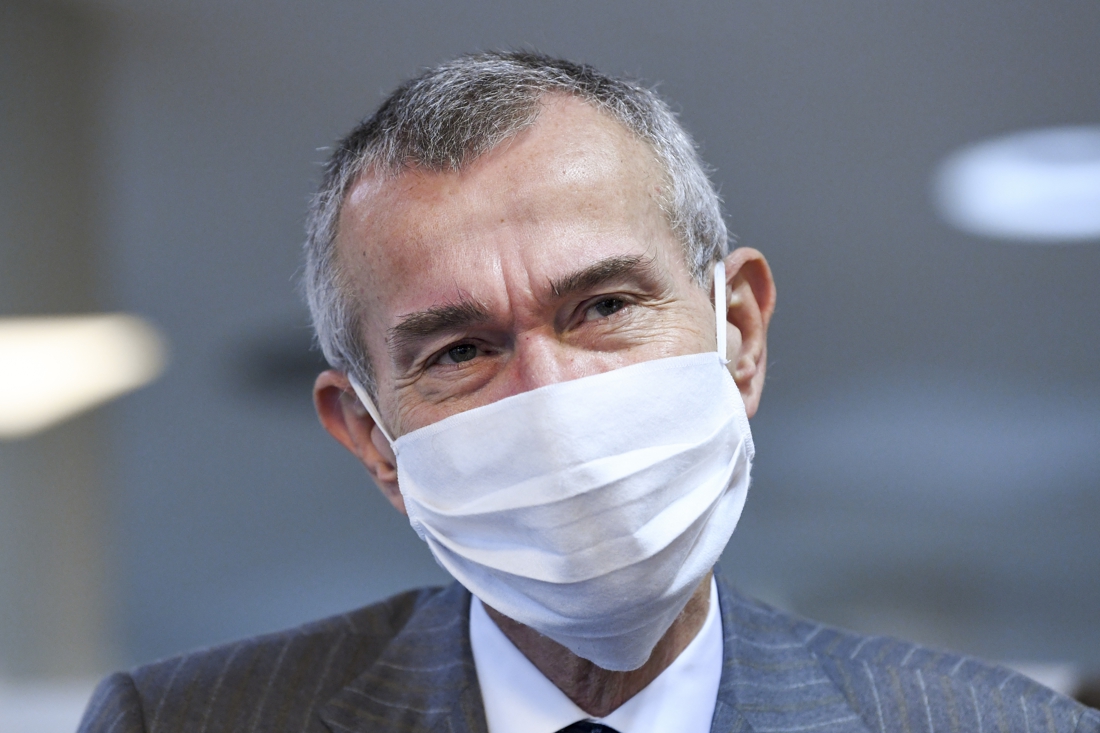The planet clings to the hope of a next vaccine against Covid-19 but the weeks will be long: the outbreak of the pandemic is overwhelming health systems in the United States and Europe where health restrictions and brakes on life social are here to stay.
At the gates of New York, the city of Newark embodies the resurgence of the coronavirus in the northeast of the United States. The rate of positive cases is 19% and after the respite of the summer, life slows down again.
“A dead city,” said Belinda Luis, co-owner of a gym in the city of 280,000 inhabitants where a curfew has been in effect since Thursday.
The virus is out of control in most of the United States, and experts are alarmed by the wave of deaths to come, given the unprecedented number of positive tests recorded, more than 100,000 per day, an incidence that is approaching of that observed in the European Union.
The number of hospitalized Covid-19 patients is at its highest in the country since the start of the pandemic, at more than 65,000 according to the Covid Tracking Project.
In recent days, four states, including New York, have ordered restaurants and bars to close at 10 p.m., marking the gradual return of restrictive measures left to the discretion of local authorities.
–Ni bus, ni train –
For millions of Europeans, each day brings a new batch of renouncements necessary to slow down the virus: Greece, already confined for a week, adds a curfew on Friday; Portugal is expanding the territories where the authorities urge to “stay at home”.
“The situation is serious and more critical than the one we experienced during the first phase of the pandemic,” Prime Minister Antonio Costa said Thursday evening.
To reduce temptations, Slovenia chooses a radical option: to suspend public transport.
“The enemy is not the State, it is the virus”, argued Thursday the French Prime Minister Jean Castex while the reconfinement of the country, in place since the beginning of November, causes weariness and questions on the to come up.
France, one of the epicenters of the second wave, is seeing a slowdown in contamination but too “fragile” to consider lifting restrictions on December 1, the government said, while 95% of resuscitation capacities are occupied and that The “peak” of this outbreak has not yet been reached.
Faced with the saturation of health care systems, distress is expressed across the Old Continent: in Bulgaria where retired doctors are sent to the front to compensate for the lack of practitioners, who often left to work in the West for better salaries; in Serbia where there were no more free places Thursday for patients with Covid-19 in hospitals in Belgrade.
The announcement made Monday by the Pfizer and BioNTech laboratories of promising tests for a vaccine “90% effective” against Covid-19, sparked a wave of hope and a movement of euphoria on the financial markets.
– All winter “at a minimum” –
But it is still too early to assess the repercussions on economic activity of this vaccine hoped for in 2021, said Thursday the president of the American Central Bank (Fed), Jerome Powell.
Echoing his counterpart at the ECB Christine Lagarde, Mr. Powell sees it as “good news for the medium term” but with unknowns about the production, distribution and efficacy of a possible vaccine which will involve maintaining the keep for many months to come.
In Germany, Angela Merkel and her government are preparing the country for a life that has been disrupted for a long time by the virus. The Chancellor believes that the epidemic will at least “keep us busy all winter”.
From hand washing to regular airing of rooms, through reduction of contacts and placement in quarantine at the slightest symptom, these precautionary measures “will accompany us for a long time, even if we have a vaccine”, echoed the ‘Robert Koch Epidemiological Watch Institute (RKI), national health authority.
Trying to adapt to this new normal, institutions for the elderly are innovating to maintain visits from relatives to vulnerable people.
–

:quality(80)/cdn-kiosk-api.telegraaf.nl/b26364dc-25b9-11eb-901a-0255c322e81b.jpg)
